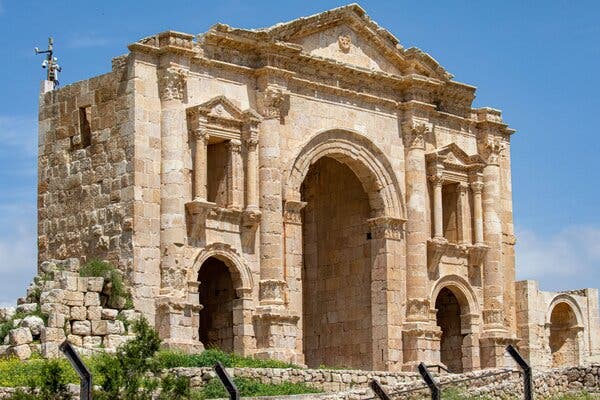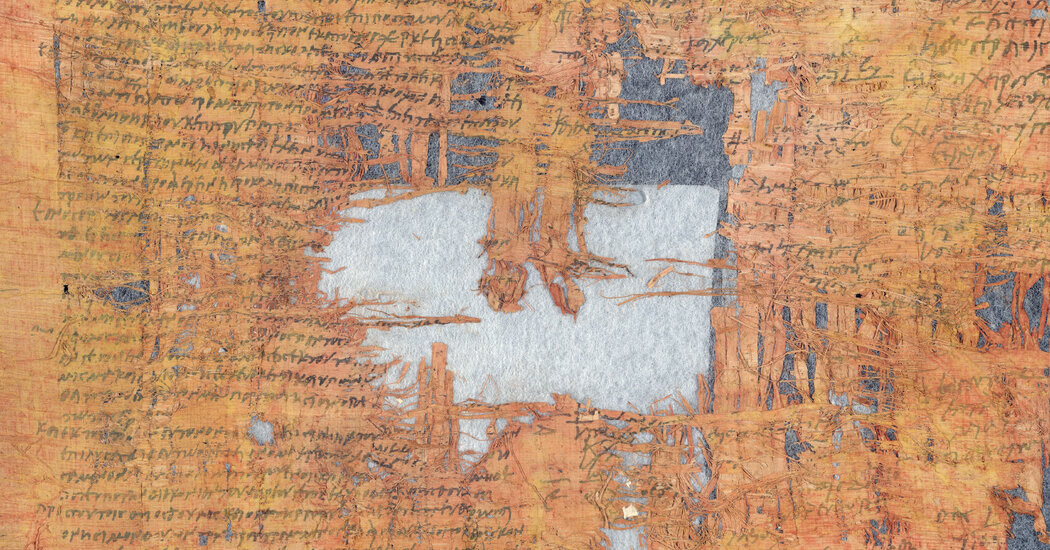It may not have been the tax-evasion trial of the century — the second century, that is — but it was of such gravity that the defendants faced charges of forgery, fiscal fraud and the sham sale of slaves. Tax dodging is as old as taxation itself, but these particular offenses were considered so serious under Roman law that penalties ranged from heavy fines and permanent exile to hard labor in the salt mines and, in the worst case, damnatio ad bestias, a public execution in which the condemned were devoured by wild animals.
The allegations are laid out in a papyrus that was discovered decades ago in the Judean desert but only recently analyzed; it contains the prosecutor’s prep sheet and the hastily drafted minutes from a judicial hearing. According to the ancient notes, the tax-evasion scheme involved the falsification of documents and the illicit sale and manumission, or freeing, of slaves — all to avoid paying duties in the far-flung Roman provinces of Judea and Arabia, a region roughly corresponding to present-day Israel and Jordan.
Both tax dodgers were men. One, named Gadalias, was the impoverished son of a notary with ties to the local administrative elite. Besides convictions for extortion and counterfeiting, his catalog of misdeeds included banditry, sedition and, on four occasions, failing to show up for jury duty at the court of the Roman governor. Gadalias’s partner in crime was a certain Saulos, his “friend and collaborator” and the supposed mastermind of the caper. Although the ethnicity of the accused is not explicitly stated, their Jewish identities are assumed, based on their biblical names, Gedaliah and Saul.
This ancient legal drama unfolded during the reign of Hadrian, after the emperor’s tour of the area around A.D. 130 and presumably before A.D. 132. That year, Simon bar Kochba, a messianic guerrilla chief, led a popular uprising — the third and final war between the Jewish people and the empire. The revolt was violently suppressed, with hundreds of thousands killed and most of the surviving Jewish population expelled from Judea, which Hadrian renamed Syria Palestina.
Advertisement
SKIP ADVERTISEMENT
“The papyrus reflects the suspicion with which the Roman authorities viewed their Jewish subjects,” said Anna Dolganov, a historian of the Roman Empire with the Austrian Archaeological Institute, who deciphered the scroll. She noted that there is archaeological evidence for coordinated planning of the Bar Kochba revolt. “It is possible that tax evaders like Gadalias and Saulos, who were inclined to disrespect the Roman order, were involved in the preparations,” Dr. Dolganov said.

An arch commemorating the visit of the Roman emperor Hadrian to Gerasa in Jordan in A.D. 129 or 130.Credit…Andre Pain/EPA, via Shutterstock
Subscribe to The Times to read as many articles as you like.




